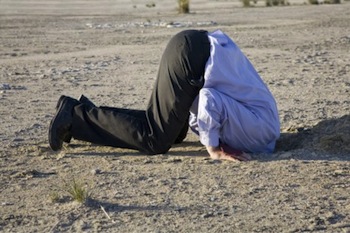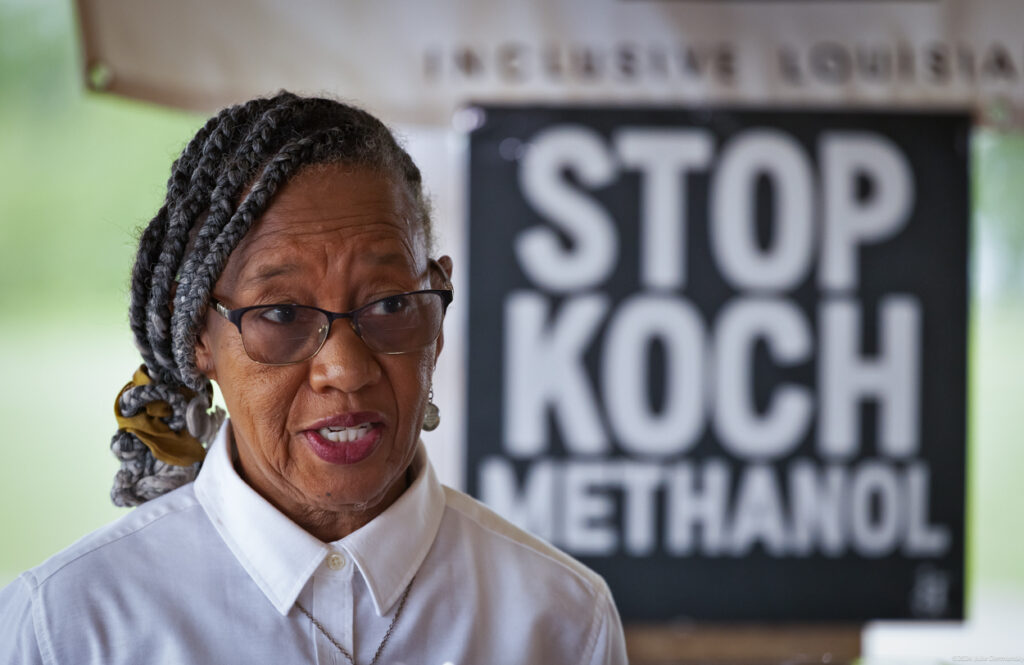Recently, PBS found itself on the wrong side of the climate change discussion, when it chose to air a one-sided, misinformation-laden interview with climate skeptic Anthony Watts. During the interview for PBS’s Newshour, no attempt was made to air a differing opinion from a credible source, leaving Watts’ incorrect statements to be aired unchallenged.
Perhaps in an attempt to “balance” their one-sided interview with Watts, last week Newshour aired a segment titled “Arctic Icecap Shrinks to Record Low Level,” in which Walt Meier from the National Snow and Ice Data Center discussed the implications, dangers, and causes of the Arctic ice melt. These causes and concerns have been documented in studies and articles all across the world, so there is no room for debate on this issue when the facts clearly show that the arctic ice caps are melting at a record.
But apparently for climate skeptics, one one-sided story isn’t enough to keep them happy for very long, and they have now decided to attack PBS for ignoring their talking points about melting polar ice caps.
Leading the charge against PBS is noted climate skeptic and Heartland Institute “expert” Steve Goreham, who tells us that Arctic ice melting isn’t a cause for concern because there’s so little ice in the arctic that it won’t make a “measurable difference” if it all melts. But more importantly, Goreham tells us that PBS ignored the “elephant in the room” by not reporting on how the Antarctic ice sheet is actually expanding.
…PBS and Dr. Meier have ignored the elephant in the room. The elephant is the Antarctic Icecap. While satellite data shows that Arctic ice has been declining for the last 30 years, the same satellite data shows that Antarctic ice has been expanding for the last 30 years.
It’s interesting that climate scientists are so alarmed by declining Arctic ice. The Arctic Icecap is only 1‒2 percent of Earth’s ice, while the elephant, the Antarctic Icecap, contains about 90 percent of Earth’s ice. The climate models underestimated the decline in Arctic ice, but they are confounded by the growth in Antarctic ice. Data from Dr. Meier’s own National Snow and Ice Center shows that the extent of Antarctic sea ice for 2012 is greater than the 1979-2000 average. I wonder why he didn’t mention the good news about Antarctic ice on the PBS segment.
If Goreham is honestly wondering why the issue of “Antarctic ice expansion” wasn’t brought up in the PBS segment, the answer is obvious: Antarctic ice has nothing to do with Arctic ice. It’s the old “apples to oranges” comparison.
Climate scientists have long told us that Arctic ice would be the first to go as a result of climate change. And there are several reasons for that. Natalie Wolchover of LiveScience explains it best:
But if anyone had asked an actual scientist, they would have learned that a good year for sea ice in the Antarctic in no way nullifies the precipitous drop in Arctic sea-ice levels year after year — or the mounds of other evidence indicating global warming is really happening.
“Antarctic sea ice hasn’t seen these big reductions we’ve seen in the Arctic. This is not a surprise to us,” said climate scientist Mark Serreze, director of the NSIDC.
“Some of the skeptics say ‘Well, everything is OK because the big changes in the Arctic are essentially balanced by what’s happening in the Antarctic.’ This is simply not true.”
Projections made from climate models all predict that global warming should impact Arctic sea ice first and most intensely, Serreze said. “We have known for many years that as the Earth started to warm up, the effects would be seen first in the Arctic and not the Antarctic.
The physical geography of the two hemispheres is very different. Largely as a result of that, they behave very differently.”
The Arctic, an ocean surrounded by land, responds much more directly to changes in air and sea-surface temperatures than Antarctica, Serreze explained.
The climate of Antarctica, land surrounded by ocean, is governed much more by wind and ocean currents.
Some studies indicate climate change has strengthened westerly winds in the Southern Hemisphere, and because wind has a cooling effect, scientists say this partly accounts for the marginal increase in sea ice levels that have been observed in the Antarctic in recent decades.
So, according to actual climate scientists, not only are the two unrelated, but the increase in Antarctic ice can actually be attributed to climate change. Goreham’s own talking points are therefore debunked by his own data.
But what Goreham is really trying to do is misdirect the public. He believes that distracting the public with a different issue will draw attention away from the real issue. This practice is all too common in both the media and politics, and is a tried and true PR tactic.
And here’s more on the non-issue of Arctic ice melts from his website:
But, Arctic ice is floating in the Arctic Ocean. Even if all of it melts, sea levels would not rise by a measurable amount. In addition, Arctic ice has expanded and receded many times in history due to natural causes.
Goreham isn’t a skeptic in the sense that he believes climate change is a hoax, but he is a firm believer that the activities of human beings have nothing to do with climate change. His quote above shows us that he’s a member of the “cyclical climate change” crowd – a crowd that chooses to bury its head in the sand and pretend the problem isn’t the result of our activities.
There is ample evidence that tells us that Arctic ice melt is not cyclical, but the result of human activities that have spurred on climate change. But as long as there is dirty energy industry money to fund think tanks and deniers like Heartland and Goreham, there will always be misinformation to tell us that the scientists are wrong.
Subscribe to our newsletter
Stay up to date with DeSmog news and alerts






